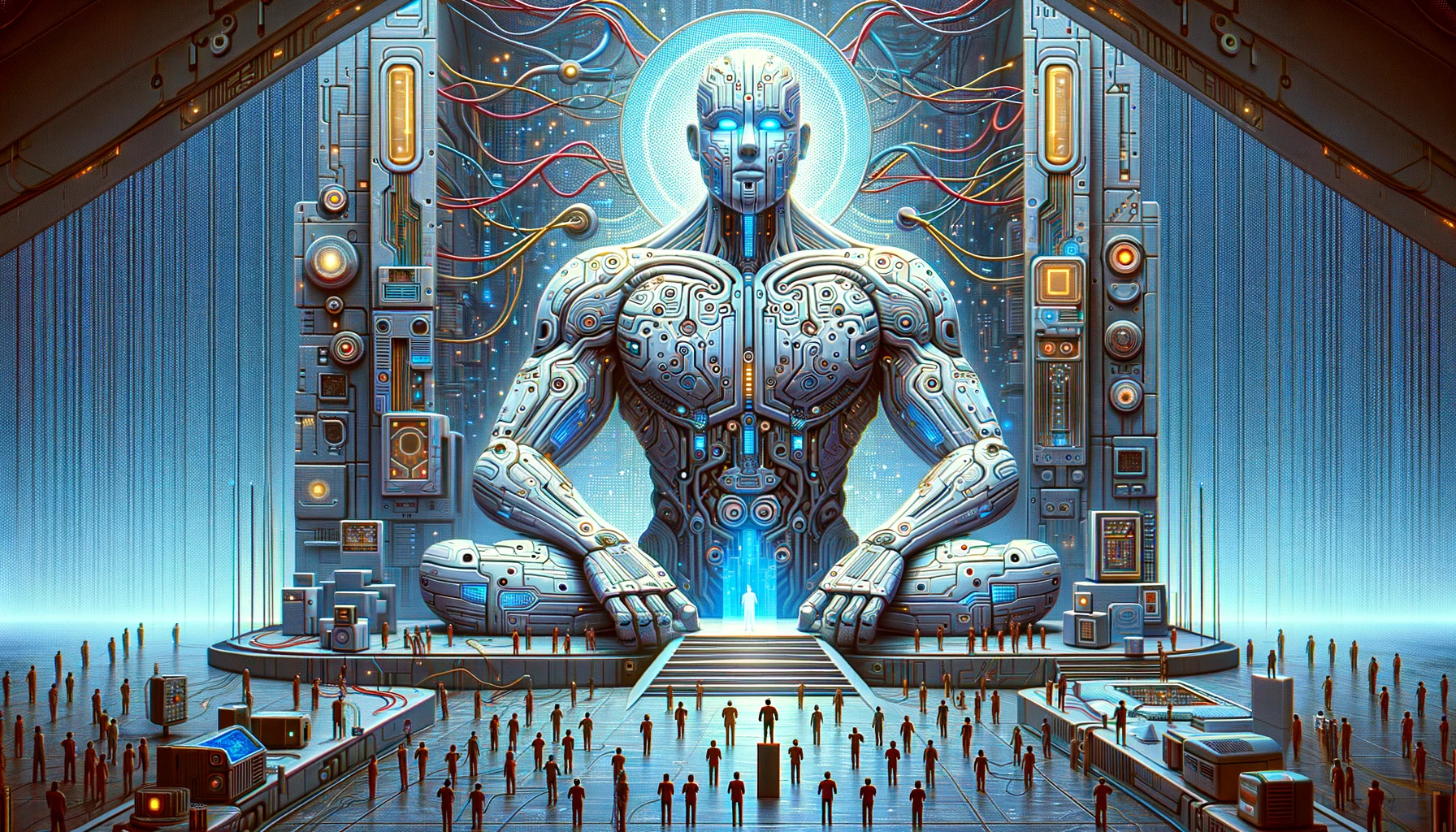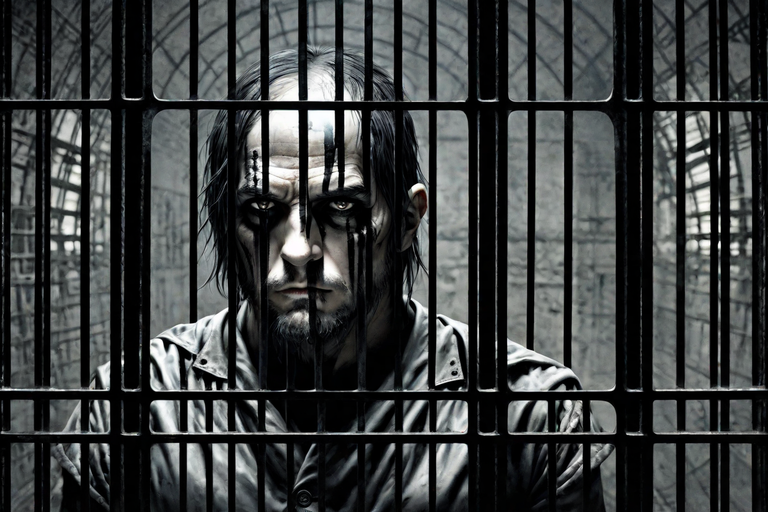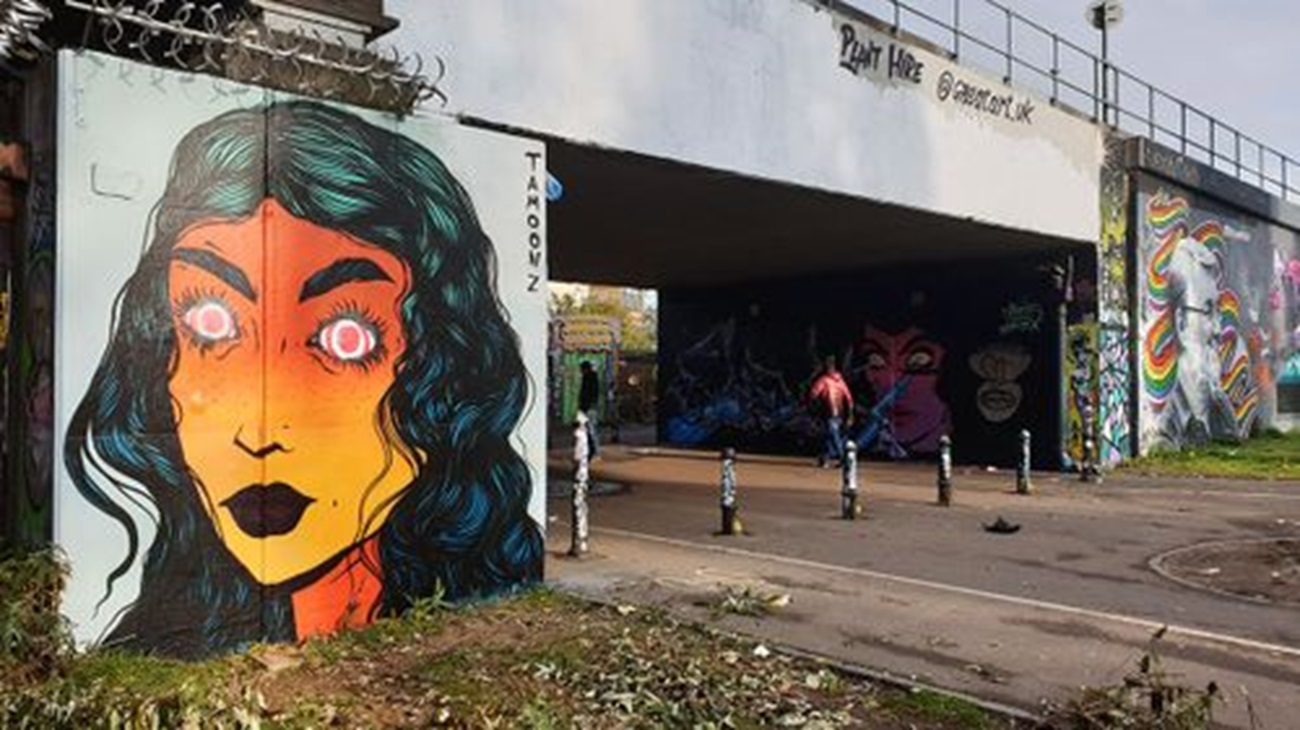All identities are created by thought – there has never been such a thing as ‘an identity that hasn’t been created by thought’ and – this being the case – we might wonder why we place so much stock in them. The reason for this is of course that we don’t realise that our precious identities are merely constructs; on the contrary, we imagine that they are 100% real, we imagine (or rather, we are totally convinced) that identities absolutely do exist and that they’re not ‘made-up things’ at all.
If we were to see that ‘all identities are created by thought’ then we’d also have to see that they aren’t real. It’s all totally arbitrary – thought can make up this identity or it can make up that one, and it can make up any identity in-between. It has perfectly free reign in this regard; there are no constraints acting upon it at all. This is what it means to ‘make stuff up’ – when we ‘make stuff up’ then we’re free to make up absolutely anything we want. That’s the whole point.
So what the thinking mind does is that it arbitrarily construct an identity for us to be. This is only half the story, however – it’s not enough for us to arbitrarily construct an identity (so that we can then say who we are), we also have to contrive not to see that this is what we’ve done. Thought can’t just ‘arbitrarily pick an identity’ therefore, it has to arbitrarily pick an identity and then say that this is not what it did. ‘Thought creates divisions and then says that they were there all along’ David Bohm tells us, and ‘who we think we are’ is just another made-up division.
“Whoever plays, plays freely.” says James Carse. Although identities are freely chosen once we have made the choice then we have no memory of any other mode of being. It seems to us that there wasn’t any choice involved, it seems to us that there is absolutely nothing arbitrary about who we take ourselves to be at all – we couldn’t possibly be anyone else and there couldn’t be anything more ridiculous than imagining that we could be. Once we’re in this situation then there’s no freedom in it, not even the tiniest little bit. All traces of freedom have been gotten rid of.
This is the same as saying that identity – any identity – is a prison. If there’s no freedom there, then what else can we call it? We don’t usually see things like this of course – we say that we want to be this identity, we say this is the greatest thing ever. We ‘talk it up’, in other words – we feel proud of our identity, we rejoice in it. We’re supposed to like who we are and, as we all know, it makes people highly uncomfortable if we don’t. This is what we call ‘loving ourselves], which is what everyone says we should be do. Loving ourselves sounds like a good thing, it sounds like the foundation stone for good mental health, but it isn’t. How could it possibly be if all identities are arbitrary?
‘Loving ourselves’ means ‘loving the identity we think we are’, and that means that we are being extolled to love ‘who we’re not’; our identity isn’t who we really are (as we’ve been saying) because it’s purely arbitrary. The whole point of an identity is that it absolutely isn’t arbitrary, after all; the whole point is that it isn’t just a pose that we can strike if we want to but rather that there is something special about it. Conventional psychology might inform us that it is good to love ourselves therefore but what this really comes down to is ‘attachment to a false idea of ourselves’…
The universe just doesn’t work on the basis of specialness (i.e. ‘eithor/or logic’) however, as would be immediately apparent if we gave the matter any consideration at all; there are no intrinsically special possibilities, only preferred ones. A map of the world contains many different possible locations but none of them have anything ‘special’ about them, none of them ‘stand out’. If we want one location to stand out, to be different or distinct from all the others, then we are obliged to arrange for this to be the case ourselves – that’s the only way it’s going to happen. We do this by dint of ignoring (or ‘writing off’) all the other possibilities and then saying – in effect – that the possibility we are celebrating is ‘the right one’ because there aren’t any others. This is also (of course) how dictators work – they attain power not on the basis of merit but because all the competition has been gotten rid of. We may think, for example, of Hitler and ‘the night of the long knives’.
The map itself is perfectly symmetrical – which is to say, all the locations contained within it are ‘equally good’ (or ‘equally bad’). Each position carries exactly the same weighting as all the rest. Similarly, in the case of space, we can say that ‘space is symmetrical’ inasmuch as all positions within it are purely arbitrary and this is another way of saying that there is actual freedom in space. Were it to be the case that space was asymmetrical in nature, with some locations being specially indicated and other others not indicated at all, then we wouldn’t be talking about space but the Continuum of Logic, which is the inverted analogue of space. The Continuum of Logic is the inverted analogue of space because while space is full of freedom, the continuum of logic has no freedom in it all, not even the tiniest smidgeon of it! Somehow, the Logical Continuum is presented to us as if there were freedom in it, as if there were bona fide possibilities in it, and we then proceed to live our lives – as best we can – on this entirely false basis.
Identity – then – is nothing more than a glorified prison. Identity is a construct of thought and thought operates according to the laws of logic and the thing about the Domain of Logic, as we have already said, is that there are no possibilities in it other than the stated possibility that we started off with. This is why we can say that ‘there is no freedom in a logical system’ – because, within such a system, the only type of freedom that exists is the freedom to do what the system tells us to do. Only those possibilities that have been defined in advance are permitted and this is constraint, this is control. ‘Freedom’ and ‘being determined by a system of logic that we can’t examine’ aren’t really the same thing, in other words! The rules that make up the system of logic controls us every step of the way therefore, whilst space – on the other hand – doesn’t try to control us at all.
Identity is a prison because of this two-step process in which we [1] choose a position, and [2] say that we never had any choice in the matter. There can be no such thing as ‘an identity’ in freedom, no such thing as a ‘right’ or ‘wrong’ way at looking at things. We are trapped in our predetermined identity just as we are trapped in the Defined World in general – all definitions are traps. In reality – which is sublimely symmetrical (or, as we could also say, which is always ‘Whole’) – there aren’t any definitions. There aren’t any definitions in Wholeness because there is no ‘right versus wrong’, and because there are any definitions (or ‘boundaries’) in Wholeness there is freedom.
The Defined (or ‘Positive’) World doesn’t exist anywhere but in our own heads. Clearly, if there is to be a defined word then there must be someone who defines it – take away ‘the definer’ and there is no more Defined World! Defining is a doing, in other words, and if we stop doing then Wholeness immediately resumes. Definitions – or descriptions – always suit the needs of the one doing the describing and so is we didn’t have any ‘needs’ (or ‘attachments’) then we wouldn’t bother to come up with a description. So the World of Definitions doesn’t really exist and this is why we are always essentially free. This is why – on the most essential level – we can never be ‘not free’.
In the World of Things, which is the only world the Thinking Mind can acknowledge, we ourselves become mere ‘things’. We would like to gloss over this unfortunate truth if we could; we generally try to offset this tendency of thought to degrade everything it touches by making a point of saying how marvellous and wonderful and inspirational the universe is but this is like a psychopath telling you how much they care for you. Fine sentiments might be expressed but it’s all just a smokescreen. It’s all just a ‘ruse’; thought is only a machine after all and so all it can do is ascribe labels or judgements – it can’t experience a sense of wonder, not about anything. It cannot appreciate mystery; instead of appreciating mystery it will immediately label it. Whenever thought comes across mystery it will immediately try to extinguish it. Thought cannot experience wonder, and neither can the Thought-Created Identity; thought can never be respectful – it can only sometimes pretend to be so. Actually, thought – no matter what it may pretend – will always disrespect us! Thought will always create a world that denies us, a world that is inimical to us. It cannot do otherwise…
“When we believe what we think, when we take our thinking to be reality, we will suffer.” says Adyashanti, and yet thought insists precisely that we do take it to be reality. It absolutely insists on this, just as the God of the Old Testament insists that we worship Him and no other. The Thinking Mind always insists on the validity of its own categories (which is to say, logic always insists that it is right). The world that thought creates puts us wrong every time, this is a world that compels us to violate our own true nature, just as Philip K Dick says in Do Androids Dream of Electric Sheep. When we believe in the world though shows us, either we suffer, or we learn to sneakily pass on our suffering to someone else which is actually a worse form of suffering for us, if only we could see it. In the MCVR we are compelled to believe in the literal reality of the self or ego and so we have no choice but to live on this basis – we have no choice (so it seems) apart from Playing the Game of the Finite Self. We have no choice but to join in with ‘the competition’ and hope against hope that we will come out on top rather than any of our competitors. This is the business model that our whole way of existence is based on; we take it as read that this is how life is supposed to be and so – as a result – we legitimise the violence and aggression which is the ‘stock in trade’ of the False (or Mind-Created) Identity…
Art – simenlangeland.com






